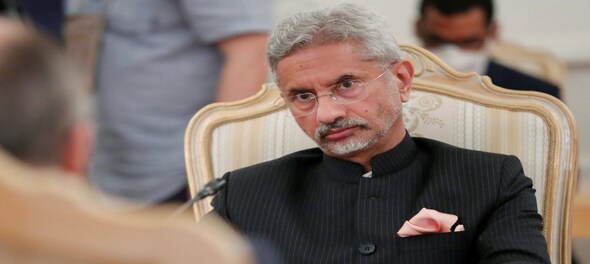
External Affairs Minister S Jaishankar raised eyebrows over the weekend when, while speaking to a group of Indian Americans, he took aim at the United States's F-16 fighter jet package to Pakistan to help the country fight terrorism. "You are not fooling anybody by saying these things (the F-16s are for counter-terrorism," Jaishankar had said.
The mild-mannered diplomat-turned-foreign minister stuck to his guns during a joint press conference with United States Secretary of State Antony Blinken and clearly said India's interests come first, be it oil or defence equipment. India, which is opposed to imposing price caps on Russian oil, said the Indian government will always look out for the interests of its own people first.
"It (price caps) is not in anyone's interest ... we would judge any situation, frankly, by how it affects us and other countries because, as I communicated to the Secretary, there is a very, very deep concern among developing countries about how their energy security needs are addressed. We are a $2,000 per capita economy, and the price of oil is breaking our backs," Jaishankar said, emphatically.
Earlier, during his opening address, Jaishankar had said the United States needs to take a firm stance against extremism, with reference to the F-16 deal with Pakistan.
Recently, the United States has been critical of government-imposed shutdowns in different countries, and urged governments to investigate and seek accountability for all crimes against journalists and media workers.
Jaishankar seemed to gently admonish the US, saying each country has its own democratic values and each government does what it must. India's democratic values are driven by its own tradition and mandate, Jaishankar said, adding, "We don't believe in the efficacy of government policies being focused on vote banks."
His US counterpart, meanwhile, maintained that the F-16 deal was not a new one, and that the US was honouring an existing deal with Pakistan.
“These are not new, this is sustaining what they have. We've a responsibility and obligation to whomever we provide military equipment to, that it's maintained and sustained," Blinken said.
Of late, India's dealings with Russia have come under the scanner, with the US, whether directly or through diplomatic backchannels, expressing disappointment in the country's continued dealings with Russia.
Jaishankar stated clearly said India buying defence equipment from Russia is nothing new, and added that the country has been known to buy equipment from the United States too, and other friendly countries.
"That's not an issue, honestly, which has particularly changed because of geopolitical tensions. I think we look at possibilities across the world. We look at the quality of the technology, the capability, the terms on which that particular equipment is offered and we exercise a choice, which we believe is in our national interest," Jaishankar said.
"If you were to look at the last 15 years, you can see that we have actually procured a lot from the United States — C-17, the C-130, the P-8 aircraft, or the Apache helicopter, or the Chinook, the Howitzers. We have done so from France, from Israel. We have a tradition of multi-source," the foreign minister said.
On Russian aggression in Ukraine, which was ramped up at an alarming level in the past week, Blinken said he agreed with Prime Minister Narendra Modi's assessment that "this is not the time for war", and said, "We could not agree more. We saw the aggression, the threat of aggression mounted from Russia against Ukraine, last year and we warned the world about and we tried everything possible to avert it through diplomacy. Unfortunately, tragically President Putin pursued his aggression, nonetheless, and now the Ukrainian people, and also the world are reaping the consequences," he said.
He said, "it really is incumbent upon Russia and President Putin to decide this is what it's going to do. Only one person has the ability to stop this aggression tomorrow, and that's (Putin)."
Blinken said the United States was very aware of the tensions between India and Pakistan, and said both countries are allies to the US, and said, "I encourage my friends to resolve their differences through diplomacy."
First Published: Sept 27, 2022 10:22 PM IST
Check out our in-depth Market Coverage, Business News & get real-time Stock Market Updates on CNBC-TV18. Also, Watch our channels CNBC-TV18, CNBC Awaaz and CNBC Bajar Live on-the-go!


Maharashtra: 258 candidates in fray for 11 seats in third phase, all eyes on Baramati
Apr 24, 2024 8:28 AM
Lok Sabha elections 2024: BJP's bid for breakthrough in Kerala is an uphill battle, say experts
Apr 23, 2024 9:53 PM
2024 Lok Sabha Elections | PM's Rajasthan speech — has it anything to do with the post-poll mood of the first phase
Apr 23, 2024 3:45 PM
It's KGF 2024 and here's a look at the key characters in Karnataka
Apr 23, 2024 3:17 PM

